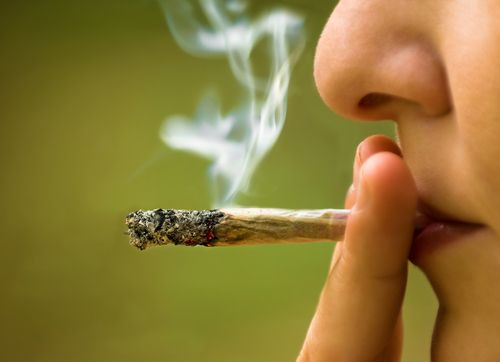Are Marijuana Allergies The Real Deal? How Negative Reactions To Cannabis May Even Spur Food Allergies

As the momentum for the legalization of marijuana continues to grow in high numbers across the U.S., exposure to the plant has become inevitable. In most areas of the U.S. and Europe, the plant is still grown indoors, limiting the risk of exposure to the general population. However, restrictions on where cannabis can be grown are starting to loosen, increasing the likelihood of the plant’s pollen-producing allergic reactions. According to a recent study published in the journal Revue Française d'Allergologie, allergic reactions to marijuana when smoking, inhaling, or chewing the plant are starting to emerge, drawing the attention of researchers.
“Allergy to illicit drugs and narcotics has rarely been reported in the medical literature. Nevertheless, in the past few years there appears to be a considerable increase in the prevalence of this allergy, in particular, allergy to Cannabis sativa (Indian hemp) is growing,” wrote the team of Belgian researchers in their report. The literature available on the allergic reactions to marijuana provides some insight as to the potential of cross-reactivity with other pollens and foods. It also makes clear that marijuana can be an allergen not only by inhalation but also by ingestion.
The team of researchers at the University of Antwerp in Belgium, working in the Allergy, Immunology and Rheumatology Department of the School of Medicine, focused in particular on Cannabis sativa. They will present their study at the 2014 Congress of French-Speaking Allergists, taking place in Paris starting April 16. The allergists indicated that the plant can cause allergic rhinitis (hayfever), conjunctivitis (pink eye), skin rashes, and asthmatic symptoms when smoked, inhaled, or chewed. They believe people who are exposed to the plant’s pollen are most likely to experience these symptoms that are similar to common allergens such as pollen, grasses, and ragweed.
In a 2000 study, the inhalation of marijuana pollen was found to produce respiratory allergic symptoms. The team of researchers examined whether cannabis could be a clinically important allergen by determining cannabis pollination patterns in Omaha for five years, the prevalence of skin test positivity, and the association with respiratory problems. Out of 78 patients who were randomly tested for allergic rhinitis and/or asthma symptoms during the cannabis pollination period, 22 claimed respiratory symptoms in the July-September period. The findings suggest that cannabis could be a clinically important aeroallergen for certain patients.
The researchers of the most recent study not only explored the effects of the plant’s pollen but also the potential cross-reactive effects of cannabis — since exposure to the plant can lead to allergic reactions to other plants, specifically foods, the NY Daily News reported. This is known as the “cannabis-fruits/vegetables” syndrome which is said to involve a protein labelled Can s 3. This syndrome is supported by a 2013 study that found there is a lipid transfer protein (LTP) in Cannabis sativa that shares cross-reactivity with a number of different foods.
LTP is known as an important allergen in plant and fruit allergies. The study found plant food allergy in patients with documented cannabis allergy had more severe reactions than patients without cannabis allergy. Cannabis abuse can lead to cannabis allergy with sensitization to nonspecific (ns)-LTP, according to the study. The sensitization may result in various plant-food allergies.
Although an allergy to marijuana is considered rare, a few reports of cannabis allergies have been documented, as lipid transfer protein was recently identified as an allergen in one case. The most recent study from University of Antwerp in Belgium suggests marijuana allergies could grow in record numbers over the next few years as cannabis is becoming legalized, and restrictions on growing the plant are loosening in several states in the U.S. Based on procedures conducted in several studies, the American Academy of Allergy, Asthma & Immunology suggests performing a marijuana skin test prior to use, for those who suspect an allergy to the plant.
Sources:
Bridts CH, Ebo DG, Sabato V, Van Gasse AL. Emerging allergens: Cannabis. Revue Française d'Allergologie. 2014.
Casale TB, Ford LB, Hartel R, and Stokes JR. Cannabis (hemp) positive skin tests and respiratory symptoms. Ann Allergy Asthma Immunol. 2000.
Bridts CH, De Clerck LS, Ebo DG, et al. New food allergies in a European non-Mediterranean region: is Cannabis sativa to blame? Int Arch Allergy Immunol. 2013.
Published by Medicaldaily.com



























